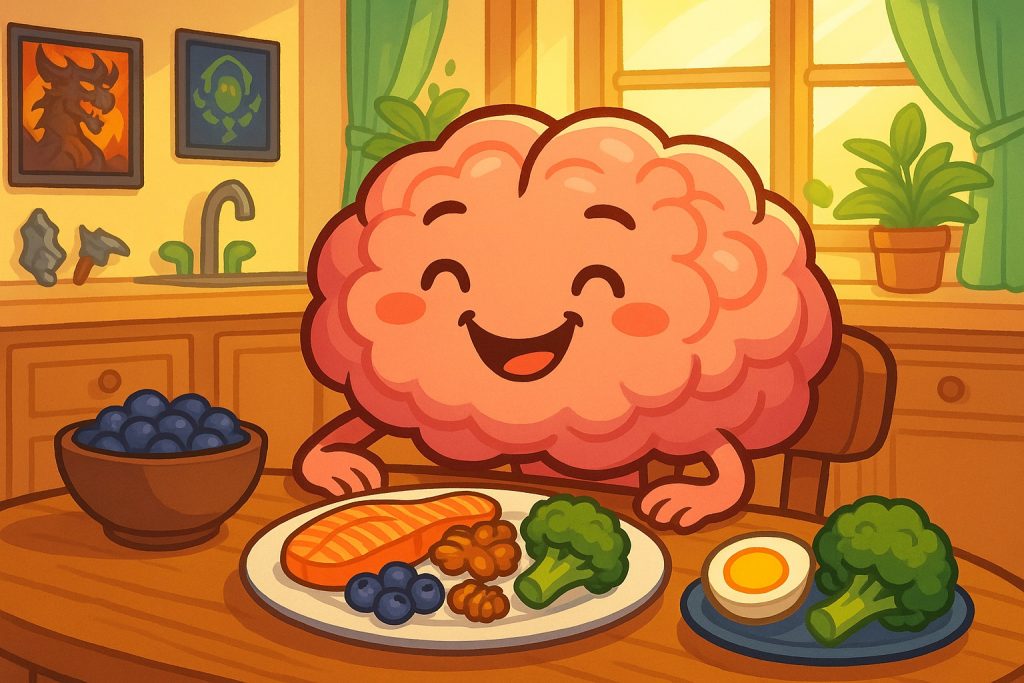The human brain is a powerful organ that requires proper nutrition* to function at its best. While rest and mental stimulation are important, what we eat can significantly influence memory, focus, mood, and even long-term brain health.
Why Nutrition Matters
The brain uses over 20% of the body’s energy, even though it makes up only about 2% of total body weight. This energy comes primarily from glucose, which is derived from the food we eat. The right nutrients support the structure of brain cells, promote communication between neurons, and help protect against aging and disease.
Key Nutrients for Brain Health
Here are some of the most important nutrients, backed by scientific research:
- Omega-3 fatty acids*: Found in fish like salmon, these fats are essential for building brain cell membranes and reducing inflammation.
- Antioxidants*: Found in berries, dark chocolate, and leafy greens, they protect brain cells from oxidative stress.
- B vitamins* (especially B6, B9, B12): Support energy production and reduce brain fog.
- Magnesium*: Helps regulate neurotransmitters, improving mood and focus.
- Choline*: Found in eggs, it’s vital for memory and cognitive function.
Foods That Boost Brain Function
- Fatty fish (salmon, sardines)
- Blueberries
- Broccoli
- Pumpkin seeds
- Nuts and dark chocolate
- Whole grains
A balanced diet combining these foods can enhance focus, reduce anxiety, and support long-term brain health.
What to Avoid
Processed foods high in sugar, trans fats, and refined carbs can lead to inflammation, slow thinking, and increase the risk of cognitive decline. Limiting these can help keep the brain in peak condition.
Glossary
- Nutrition* — the process of getting the food necessary for health and growth.
- Omega-3 fatty acids* — healthy fats that support brain and heart function.
- Antioxidants* — substances that reduce damage from free radicals in the body.
- Choline* — a nutrient important for brain development and memory.


